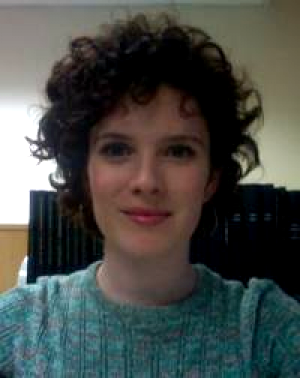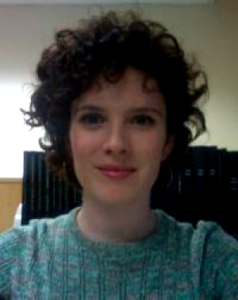In the Boston Review, the critic Katy Lederer wrote, about your poems : "Reading this work, I fell in love again with language. Not because it is beautiful or even particularly true, but rather because it transports." What are you looking for in poems ?
Like Katy, I can definitely “fall in love” with transporting poems. When reading, I get very excited by poems that reach outside of the normal limits of what we consider a “poem,” what we consider “normal usage” of things like parts of speech, names, and narratives. I get excited when a poem is so curious about its own limits that it risks complete failure. When writing, I guess I’m looking for that too, although I realize that I’m not going to write in the same way as anyone else.
Could you tell us something about the mind of the splendid and surprising State Report ?
There are a lot of puns and verbal jokes that occur to me in unexpected moments, almost as if they are spoken to me by a voice coming from elsewhere. The poet Jack Spicer said something about a poet being like a radio that picks up signals from outer space; that perfectly describes where my puns come from. The idea to use “Wyoming” as a verb occurred to me in just such a way. I had several different versions of the poem, and I eventually settled on this one as the “finished” one. Something about the solitude and sense of longing conveyed in the poem belonged with Wyoming, which can be a very solitary, contemplative place.
You are a poet, and also a publisher of Argos Books publishing. What about your publishing work? What is the mind? The way? Could you elaborate on your work philosophy ?
My friend Elizabeth Clark Wessel and I started Argos Books two years ago, because we both love books and wanted to be involved with a community of people who also love them. We have a third editor, E.C. Belli, who is also a brilliant poet. I am a deep believer in making more of whatever you love in the world. I love contemporary poetry, especially innovative writing that opens up new questions about what’s possible with language. It’s a thrilling creative experience, reading and choosing and putting together books. It just so happens that most of the work we publish is by women.
To be a publisher as well as a poet, you must have a conception of words, maybe of the world, too ?
There’s an aspect of publishing that’s all about business : marketing, networking, and distributing your books. That part can feel very un-creative and boring. I’m still in the process of learning how I want Argos to “live” in the world, and I feel the same way about my own poems. The two endeavors go hand-in-hand. The poet Anna Moschavakis once said that small-press publishing was like a “big collaborative art project”; I love thinking of it that way.
The poet and translator Jacques Burko said that to translate poetry one must be a poet oneself. Are you also translator? If so, what does translating poetry mean to you? Does it mean loyalty to the poem at start or allowing the passage of a vision from one language to the other ?
I studied translation while I was getting my Master’s degree at Columbia, and have translated some poems from Spanish by Eugenia Brito and Marosa di Giorgio. Currently, Liz Clark Wessel (who is a translator from Swedish) and I are co-editing a magazine called Circumference, which focuses on poetry in translation. So, translation is something that I care very deeply about. The best translations, I believe, are done by people (poets or not) with an intimate understanding of both the language they’re translating from, and the spirit and intention of the poem they’re working with. I think being loyal to the literal “meaning” of a poem means being true to the time, place, and situation in which the poem was written, as well as to the poet who wrote it, which oftentimes leads a translator away from word-for-word translation.
You publish artists’ books. There were a lot of artists books in France in the 20e century, with René Char, Picasso, Miro… What is the purpose behind their limited edition ?
What books and works of art have in common is that they are both objects—they both have aesthetic considerations that influence how a viewer or reader experiences them. It’s very satisfying to me to make books that not only include visual art, but are considerate of the viewer/reader’s aesthetic experience, that try to make it interesting in some way. I’m fascinated by the history of artists’ books, and poets who have collaborated with artists in general. Actually, I find poetry to be more like painting than it is like other kinds of writing—fiction, journalism, etc. A poem can be like a verbal painting… I want the books I make to explore that.
At last, dear Iris : is there a poem which always goes with you ? Is there a poem which never leaves you ?
What a good question ! “The Proverbs of Hell” by William Blake is permanently etched in my memory. It’s not a poem exactly, but it was written by one of the greatest poets ever, contains very beautiful language, and offers very useful advice, such as: “Think in the morning. Act in the noon. Eat in the evening. Sleep at night.”
Propos recueillis par Matthieu Baumier et Gwen Garnier-Duguy avec l’aide d’Asha Gopaul-Pfau

